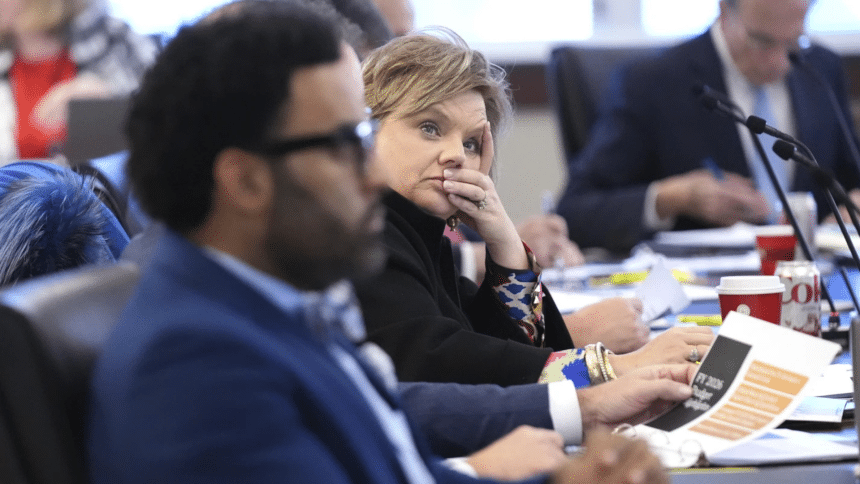Whether the product of petty retribution in what was a publicly contentious legislative session or due to lawmakers sincerely believing some things should not become law, plenty of bills died at the Mississippi capitol during the waning days of the regular session.
Of those bills that will more than likely have to wait until next year to be brought up again, the failure of legislation allowing parents of adults with developmental disabilities to continue receiving child support after the age of majority has Sen. Nicole Akins Boyd “frustrated in all kinds of ways.” The Republican from Oxford, who is the mother of a child with special needs, wrote the bill after hearing concerns from other parents within her community.

According to Boyd, divorce rates among families in Mississippi who have disabled children is as high as 87%. This often results in one parent bearing primary caretaker duties and the other paying child support until their child turns 21, which under state law is the age of majority and when a person gains full adult status. As is the case in many situations, people with developmental disabilities are unable to carry out the adulthood responsibilities required of someone with no developmental disabilities, meaning they often continue living with their parents or family members well into, if not for the entirety of, their adulthood.
Thus, parents are tasked with financially supporting their disabled children for much longer than parents of children with no disabilities. In the case of a divorced couple with a disabled child, the one required by a judge to pay child support only has to pay until the child reaches the age of 21, leaving the primary caretaker to front the entire financial burden for however long afterward.
“We have to make sure people are taking care of their children. I’m outraged a little bit,” Boyd said after the bill died. “This is not right in the state of Mississippi. I’m frustrated in all kinds of ways. Simply because your child turns 21, that doesn’t mean their disability goes away. That disability continues.”
RELATED: Mississippi’s Blue Envelope Program to help autistic drivers becomes law
Over 40 states have enacted similar laws to extend child support past the age of majority, including neighboring states Alabama and Tennessee, for children with disabilities who are unable to achieve financial independence. As for how much and how long the child support extends, like many other states that have such laws, Boyd’s proposed legislation would have left it up to the courts to determine the specifics with at least two medical professionals providing testimony. According to her, she’s received phone calls from local judges asking for the law to be put in place in Mississippi.
“Our judges are clamoring for this across the state…because they see this time and time again, where this one family member all of a sudden bears all of the responsibility because they legally can’t make the other person contribute to that child once they turn 21,” Boyd said.
Boyd’s bill has seen support in the Senate for multiple years now but has been held up in the House of Representatives. During conference, where lawmakers from both chambers can negotiate legislation, a consensus was reached, but it failed to go for a full vote after discussion on the House floor.
Boyd, in part, blames her Republican colleagues for not standing up for “what is right” when it comes to ensuring people with disabilities are taken care of. She said that in a pro-life state like Mississippi, where abortion is banned except in certain cases, conservatives should be taking every opportunity to give children the best life possible.
“I didn’t hear a single Republican colleague (in the House) stand up and say, ‘Hey, we need to take care of our kids,'” Boyd said. “A lot of convenient conservatism.”
As lawmakers will soon be asked to return to the capitol for a special session after failing to pass a budget funding government operations after June 30, 2025, it’s unclear if Republican Gov. Tate Reeves will use the opportunity to revive Boyd’s legislation. He has, so far, mentioned the possibility of asking lawmakers to discuss other previously-killed topics such as legalizing mobile sports betting, allowing more school-choice options, creating a “Parents’ Bill of Rights,” allowing home-schooled students to play public school sports, and reforming the state’s certificate of need laws.







